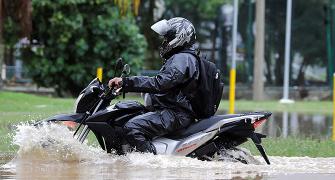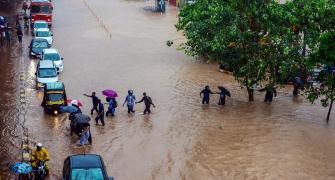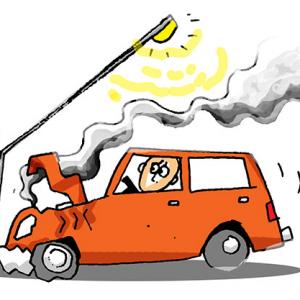'Exit the car and call for your vehicle to be towed.'
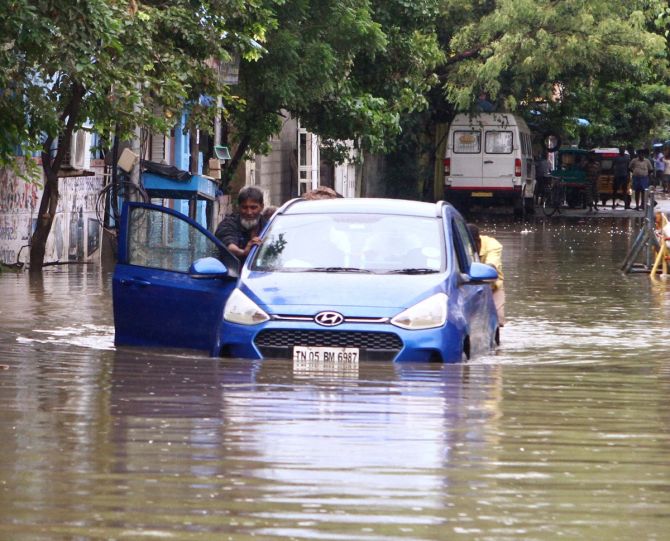
The recent floods in Chennai saw many vehicles getting submerged.
A comprehensive motor insurance policy includes a third-party (TP) cover and an own-damage (OD) cover.
While a TP cover, which is mandatory, covers you against liabilities arising due to damage to a third person, the OD cover offers protection against damage to the vehicle caused by natural and man-made disasters.
To offer adequate protection against flooding, a comprehensive policy needs to be supplemented with multiple riders.
Engine and gearbox protection
Flooding can cause the engine to stall.
When this happens, people often turn on the ignition repeatedly to restart the car.
"This allows water to get into the engine and causes it to seize up permanently," says Animesh Das, chief underwriting officer, Acko Insurance.
A comprehensive policy will not cover this damage, caused not by an impact, but by an act of the driver. Hence, you need to buy an engine protection cover.
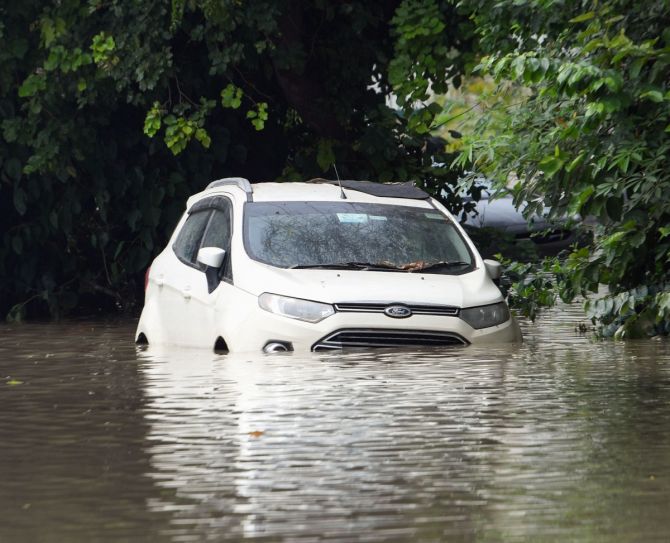
Zero depreciation
Many parts of the engine or body may have to be replaced during repairs. A comprehensive policy will not reimburse the full cost of those parts.
"A depreciation is applied based on the car's age. A 50 per cent depreciation could be applied to a five-year-old vehicle," says Nitin Kumar, head-motor insurance, Policybazaar.com.
To avoid paying out of your pocket, you need a zero depreciation cover.
"It allows the total cost of the car's damaged parts to be claimed, without any depreciation being applied based on age or type of part," says Narayan Rao, head of motor claims, Digit General Insurance.
Roadside assistance cover
If the road you are travelling on is waterlogged, do not try to cross it.
If your engine stalls in a waterlogged area, do not try to restart it.
"Exit the car and call for your vehicle to be towed," says Das. A roadside assistance cover is useful in such situations.
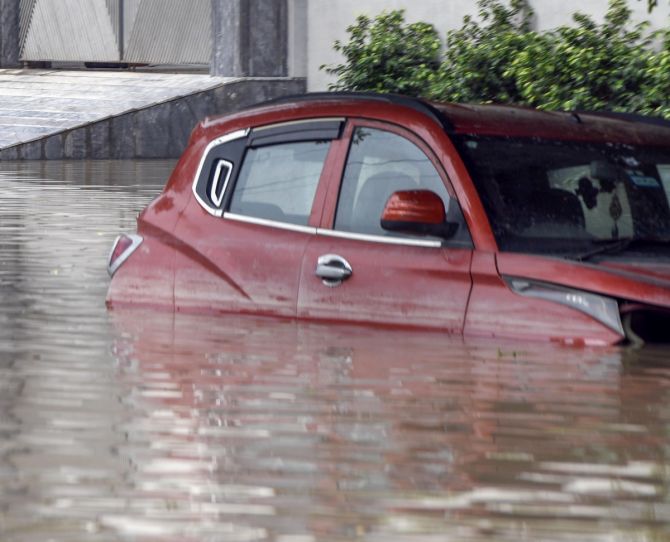
Consumables cover
During repairs after flooding, consumables like engine oil and gear oil have to be replenished.
"The cost of such consumables can easily mount to Rs 2,000 to Rs 5,000. Buying this cover can help you avoid this cost," says Kumar.
Once the car gets submerged
Once your vehicle gets flooded, exit it along with the other passengers. Rao warns against re-entering it to avoid electrical hazards.
Do not try to restart it. "Doing so can cause severe damage to the vehicle's electrical and mechanical systems, which might damage the car and could void your insurance coverage," adds Rao.
Santosh Menon, chief claims officer, TATA AIG General Insurance, advises that instead of trying to start the vehicle yourself, you should arrange to have it towed to a workshop.
"Take photographs or videos of the submerged vehicle at the site to document the extent of damage," says Rahul M Mishra, co-founder and director, Policy Ensure.
Once the water has receded, disconnect the battery power.
Next, notify your insurer. "Policyholders should not delay claim intimation," says Menon.
The insurer will then appoint a surveyor. "The surveyor will inspect your car and assess the damage. Once the assessment is ready, the garage can be asked to start repair work," says Kumar.
Have the vehicle taken to a network garage, if one is available nearby.
"The insurer will directly settle the bill with the garage, and the insured will only need to pay any deductible or non-covered expenses, if applicable," says Rao.
If no network garage is available, you will have to pay the bills and submit them to the insurer.
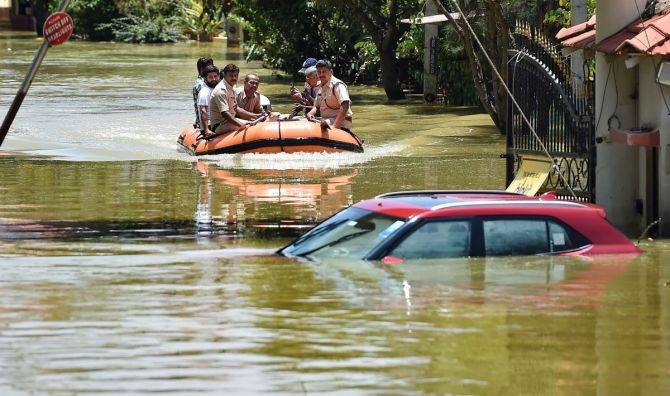
Mishra notes that the documents you need to submit include photos (of the submerged car), a copy of the policy, and anything else the insurer requests.
The insurer will reimburse the covered expenses after reviewing the documents.
Mishra warns that one should not start repairs without the insurer's approval as this can affect the claims process.
Finally, exercise patience. Menon points out that their company's claims department has set up a special cell at their Egmore office in Chennai.
Other insurers would have done the same. Nonetheless, with garages and insurers witnessing a surge of customers, there could be some delay in claim settlement and repairs.
Feature Presentation: Rajesh Alva/Rediff.com


